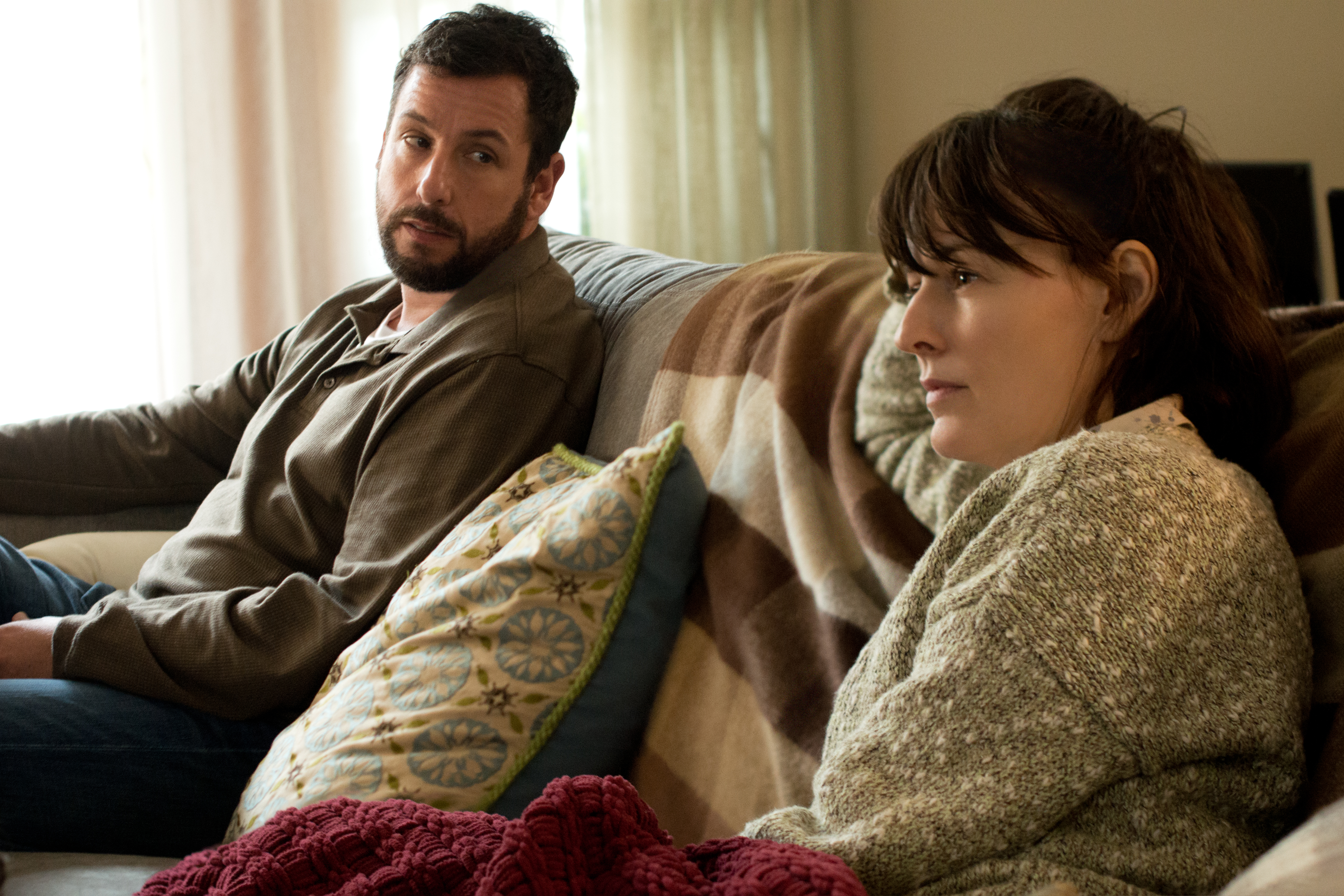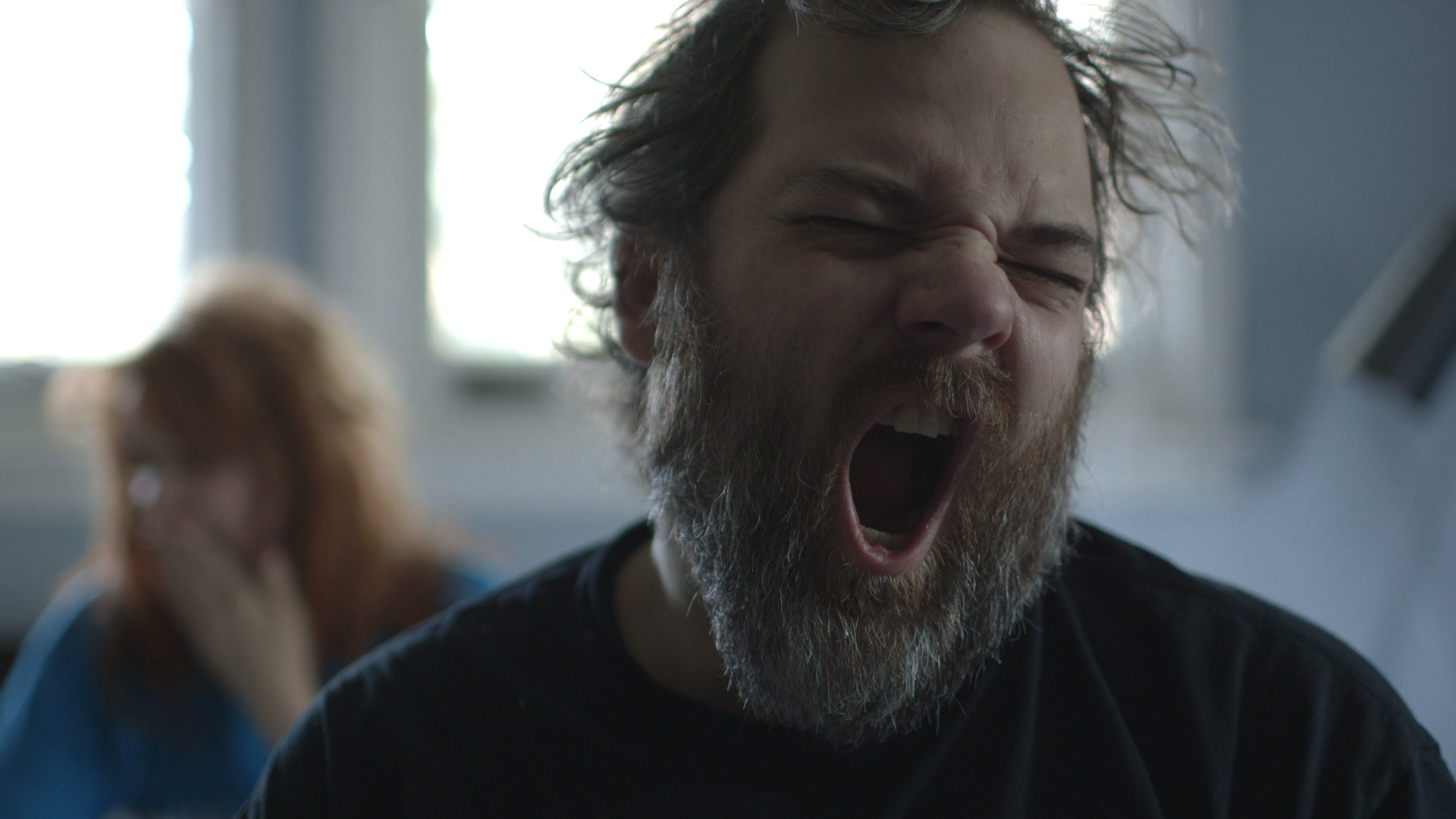The Best of Me
Opens Fri., Oct. 17 at Sundance Cinemas and other theaters. Rated PG-13. 118 minutes.
Even by the standards of The Notebook author Nicholas Sparks, his 2011 novel The Best of Me employs an extremely simple setup. Twenty-one years after they last saw each other, high-school sweethearts Amanda and Dawson meet again, and an old glow is rekindled. Perhaps because of the simplicity and universality of this situation, Sparks has added a cornucopia of insane plot developments: an accidental death, an organ transplant, surprise instructions in a will, and a family of drug-baking hillbillies who make the Deliverance crew look unassuming.
Along with the deep-fried melodrama, there’s a dicey storytelling thing going. Amanda and Dawson spend part of the story as adults, the other part as teenagers, so the movie adaptation will flip back and forth between two sets of actors—a tough structural challenge even when the actors look like each other, which in this movie they don’t. Michelle Monaghan and Liana Liberato split time as the high-bred Amanda, and James Marsden and Luke Bracey play dirt-poor Dawson. After surviving an oil-rig accident that convinces him he’s been spared for a reason—and this being a Nicholas Sparks story, you better believe there’s a reason—Dawson is called back to his Southern hometown for a bequest from a recently deceased mentor (Gerald McRaney). This is how he gets in the proximity of Amanda again, who’s now married and a mom. But Sparks is no amateur at this; Amanda’s husband is an alcoholic and a golf nut, so the alert viewer will sense a possible loophole for a little shared intimacy between Amanda and Dawson when they head out to a weekend cabin to spread their dead friend’s ashes.
The Best of Me is directed by Michael Hoffman (The Last Station), a filmmaker usually inclined to braininess and sophisticated comedy. He might be the reason the movie has some legit exchanges between Monaghan and Marsden, who do seem like grown-ups at certain moments. Monaghan (lately seen in True Detective) has a strong instinct for truthfulness, which probably explains why Hollywood doesn’t know what to do with her. But all this effort is in service to a truly ludicrous scenario that gets more face-slappingly incredible as it goes on. Nicholas Sparks is 48 years old and has published 18 books since 1996. This isn’t going to end anytime soon. Robert Horton
PFishing Without Nets
Runs Fri., Oct. 17–Thurs., Oct. 23 at SIFF Film Center. Rated R. 109 minutes.
You’ve seen this story before, maybe twice: Tom Hanks in Captain Phillips and the Danish A Hijacking. Cutter Hodierne’s tale of Somali pirates seizing a small, empty oil tanker will seem familiar to viewers of those fine films. The key difference here, however, is a mostly Somali perspective—from a fisherman hero who knows better than to join a hijacking crew, but who needs the money to feed his family. Abdi (Abdikani Muktar) expresses such thoughts in voiceover, repeatedly casting back in memory as the thriller advances toward bloodshed, contrasting his contented past life with his new role as hired gunman.
Abdi speaks a few friendly words of English to the captive French crewman—Reda Kateb, from A Prophet—with whom he plays bottle-cap checkers, but the language and culture barriers totally divide pirates and hostages. The Somali cast are all non-actors (some who appeared in Hodierne’s prior short, expanded into this Sundance prize-winner), their dialogue all subtitled to us. We never see the other side of the ransom negotiations; Abdi’s as much in the dark as we are, a cog who gradually realizes that he’s traded one profession, fishing, for a lower station in another. “This is a business,” one of his bosses declares. “The hostages are the product.” (The gang’s leader is known as Mr. Chairman.) After weeks of unprofitable negotiation, the gang tries to sell the French sailor to another crew. He’s physically prodded and inspected like a slave, the skin colors reversed in this discomfiting mercantile inspection.
Shooting in widescreen on the Kenyan coast, Hodierne creates an almost documentary-like sense of place and culture. Abdi wanders a sandy landscape that’s gradually being depopulated: His wife and son have joined a smuggler’s caravan to Yemen, looking for better prospects, as he is. Were they safe, these beaches might cater to tourists, but the land is littered with trash and ruled by AK-47s. If the Somalia unsparingly depicted here isn’t in a state of civil war, the wrecked economy is no less destructive. “Our nets are coming up empty,” says Abdi. Losing his vocation makes an honest man desperate—like the poor Italian searching for his wheels in The Bicycle Thief. Brian Miller
Fury
Opens Fri., Oct. 17 at Ark Lodge and other theaters. Rated R. 133 minutes.
Seven decades after World War II, and countless movies about it, I don’t know if audiences still have a taste for straightforward combat flicks like this. But you know who does? Brad Pitt. Now 50, he’s of the generation that sat on Grandpa’s knee to hear war tales, though with considerably less brutality than shown here. Fury (the nickname for a tank) is very much a throwback, respectful of genre and history, proudly old-fashioned in its veneration of teamwork and heroism. It’s in no way a surprising movie; the plot and ending are essentially what you expect; and that earns it a creaky kind of integrity. You can’t accuse Pitt and filmmaker David Ayer (Sabotage, End of Watch) of overpromising and not delivering. Nazis are killed by the score, and our side inevitably prevails.
Sgt. Don Collier (Pitt) gives no indication of his life before the war; nor is there any depth to his typical crew—Shia LaBeouf the pious Bible-thumper, Michael Pena the steadfast Mexican-American, Jon Bernthal the volatile hick—and their regional accents. Because every WWII movie demands one, the greenhorn here is Ellison (Logan Lerman), a typist recruited to man the machine gun where his predecessor perished in a bloody puddle. Speaking of typical: Collier’s moniker is “Wardaddy,” as he exerts loose but firm paternal authority over his men. (He even warns them against horseplay, a word I haven’t heard since the days of Johns Wayne and Ford.)
Fury covers 24 hours in April 1945, as Allied forces roll through Germany in the war’s endgame. Women and children are being forcibly conscripted to defend the Heimatland ; those who refuse, Collier explains, are hung from telephone poles by the SS—his most hated enemy. His most lethal enemies are the few remaining Tiger tanks, much better armored than our flimsy Shermans. (Later we’ll see them ripped open like sardine cans, evidence of the armored divisions’ extremely high casualty rate.) Though victory is, to us, preordained, the mood here is all mud and exhaustion. Collier and crew have been fighting for years, from North Africa to Europe, to the point where he says of his tank, “This is my home.” (German troops say the same thing during the finale—not that it saves them.)
In a vain appeal to female filmgoers, though this is hardly a date movie, Ayer creates an extended interlude at Fury’s midpoint as two German women host Collier and Ellison. It goes on too long, the sexual politics are dubious, and Collier’s other crewmen crash the affair—giving it an ugly aftertaste. Are these Yanks occupiers or liberators? Ayer himself is an ex-military man, having served on a submarine and written U-571. His Fury may be an exercise in broad-brush patriotism, yet this is the one scene that snags the waving flag. Collier seems to yearn for a calm, cultured oasis amid the chaos of war. Yet if evil has originated in Nazi Germany, violence is a virus he’s brought with him. Brian Miller
Harmontown
Runs Fri., Oct. 17–Thurs., Oct. 23 at SIFF Film Center. Not rated. 101 minutes.
Dan Harmon should be a fascinating documentary subject. A high-profile television showrunner, the 40-something writer and producer has tilted the axis of TV entertainment to a more postmodern angle. That’s the beauty of his conflicted genius. On the other side is his apparent ugliness, which led to his (ultimately temporary) 2012 dismissal from Community, the experimental NBC sitcom that stands as his greatest achievement.
Harmontown director Neil Berkeley catches his subject soon after this very public defrocking, and Harmon is flailing. He’s under contract to develop two pilots—one for CBS, one for Fox—but struggling to meet deadline. “Takes a lot out of a guy,” Harmon jokes, “being a vessel for God.” The one thing Harmon has going for him is his weekly podcast, Harmontown, and so he takes the show on the road for a brief tour, Berkeley in tow.
Fans of the podcast will likely find something to love in this doc. But those seeking a deeper understanding of the genius in Harmon’s other, more interesting undertakings will walk away disappointed. Those projects—in particular Community and the inspired yet failed pilot for Heat Vision and Jack—are only briefly considered. Big names like Joel McHale, John Oliver, Ben Stiller, and Sarah Silverman are here, but they don’t reveal much. Their brief testimonials contain the qualified praise and earnest concern you’d expect to hear at the prep meeting for an intervention.
Which maybe Harmon needs. Each night of the podcast tour, he takes the stage without a plan. Save for a few pockets of original humor, his shows devolve into masturbation jokes, alcoholism, and self-loathing. The nerdy, adoring crowds seem to enjoy the spectacle, and Berkeley captures that adulation—if little else. Nothing really happens in the doc, aside from Harmon somehow finishing his CBS pilot (which we later learn was another failure).
So what’s the movie about? “I thought this was going to be about me getting better and better at doing a show,” says Harmon during one of his reflective moments. “It’s become about me dealing with the fact that I don’t need to have one.” Let’s hope that the second part of that statement is true. Mark Baumgarten
PLilting
Opens Fri., Oct. 17 at Varsity. Not rated. 91 minutes.
Marriage equality may be a new thing, but there’s always been equality in grief. The death of a lover is like the death of a spouse, though for Richard—whose partner was closeted to his conservative mother—that grief daren’t be spoken directly. In flashbacks and regular nursing-home visits to the widowed, Mandarin-speaking Junn (Cheng Pei-pei), who’s never adjusted to England or learned the language, Richard has to balance sadness and candor. Junn is now totally alone, harboring happy memories of Kai (Andrew Leung), living in a dreamy sort of reverie where Kai is as alive (though different) as in Richard’s own fond recollection. (The latter is played by Ben Whishaw, from Bright Star and Perfume.)
This kind of past/present dreamworld would be a challenge for any filmmaker, and I won’t pretend that writer/director Hong Khaou’s first feature carries off the spell in an unbroken fashion. Wisely, he punctuates the gauzy recollections with two tart elements set squarely in the present, providing some welcome humor. Visiting Junn, Richard brings the no-nonsense Vann (Naomi Christie) as his translator. Junn mistakes her for Richard’s girlfriend—convenient for him—and she also uses Vann’s services when a kindly widower (Peter Bowles) courts her at the old folks’ home. A series of awkward, tender, funny three-way conversations results, with Richard constantly reconsidering his words to Junn, interjecting to Vann, “Don’t say that.”
As Richard finds himself acting as a kind of surrogate son to Junn, almost channeling Kai’s ghost to her, the question arises as to whether loving someone and simultaneously lying to them is so wrong. This was essentially Kai’s dilemma with his mother, now perpetuated with Richard. Lilting is very much a memory play, Tennessee Williams in a different key, echoing Hong’s hybrid background. (His ethnically Chinese family emigrated from Cambodia to England in the ’80s, when he was a child; he’s lived a life of cultural translation.) Whishaw’s tremulous grieving may suggest a full-on weepie here, but Cheng’s dry-eyed performance helps contain such sentimental excess in Lilting. Though Richard and Junn have a loss in common, this poignant movie doesn’t insist that their different memories need to be reconciled. Brian Miller
Men, Women & Children
VeeShapeOpens Fri., Oct. 17 at Sundance and other theaters. Rated R. 116 minutes.
If you didn’t get the message in last year’s Disconnect, director Jason Reitman is here to remind you again that the Internet is A Very Bad Thing. We cannot emphasize that enough. Your children are probably watching German fetish porn as you read this. (Or worse, you’re watching it yourself.) Parents are clueless: either too permissive or overprotective. Teens are meanwhile intoxicated by the online stew of sex, bullying, friending, betrayal, shaming, and “thinspiration” (yes, it’s a thing; look it up). If their parents only knew what was on their phones and computers, they’d be shocked; and this is the kind of literal-minded movie that will inevitably bring them to that revelation.
Reitman, who tends to rise (Up in the Air, Juno) or fall (Labor Day) with his source material, is here adapting a recent novel by Chad Kultgen, which is nothing if not topical. When Reitman films the high-school scenes, animated bubbles fill the cafeteria with emoticons, texts, IMs, and viral videos. No one looks up from their phones save for outcast Brandy (Kaitlyn Dever), whose nose is generally in a book (eew). Drawn to her is ex-jock turned video-gamer Tim (Ansel Elgort), now also a pariah for quitting the football team. (This is Texas, though not so well-wrought as Friday Night Lights.) There’s also a mean-girl cheerleader and her innocent protege plus the porn-addict son of an apathetic couple (Adam Sandler and Rosemarie DeWitt) whose marriage is falling apart by mutual consent.
Almost none of these teens are capable of having actual conversations, and their parents aren’t much more articulate. Partly to solve this problem, though it paradoxically makes the characters seem all the more dumbly typical, is the omniscient Oxbridge narration of Emma Thompson. The contrast is amusingly jarring as she catalogs various porn fetishes (“Titty fucking cum queen . . . ”) and charts the progress of the Voyager spacecraft beyond our galaxy, which makes all human problems seem terribly, terribly small. (Tim turns out to be a major Carl Sagan fan; if we’re all insignificant atoms, he tells Brandy, “I find that comforting.”)
But are these problems—extending to teen pregnancy, parental adultery, and suicide attempts—large or small? Is the movie exaggerating or normalizing suburban pathologies? And is technology really to blame? Reitman can’t seem to decide. His shallow movie illustrates a lot of anxieties in the culture right now, but without any bite or insight. (Kultgen is no Tom Perotta.) With so many players in the ensemble, including Jennifer Garner and Judy Greer, the movie never settles on any core drama. Nothing happens for the first hour, and everything that happens next is easy to guess. So is it the kids, parents, or filmmakers today who can’t concentrate on a single topic? Men, Women & Children keeps its thumb pressed to the remote, ever searching for the next shameful situation. All of which leads me to the last thing I ever thought I’d hear myself saying about a movie: More Adam Sandler, please. Brian Miller
Rudderless
Opens Fri., Oct. 17 at Sundance and SIFF Cinema Uptown. Rated R. 105 minutes.
The ghosts from a school shooting hover over the otherwise Sundance-y story of Rudderless, a low-boil drama directed by the actor William H. Macy. The shooting is left offscreen, and the bulk of the film takes place two years later, the sorrow still fresh in the mind of our central character. This is Sam (Billy Crudup), whose son died in the college killing. Once a go-getter of an advertising man, Sam has dropped out; he lives on his boat on an Oklahoma lake and paints houses. Grief leads him to transcribe the songs his late son was writing, and when he performs a tune at an open-mike night, a 21-year-old musician named Quentin (Anton Yelchin, the Chekov from the Star Trek reboot) gets excited about the music. Maybe they should start a band? As antisocial as Sam is, this process will drag him back to the stage—but he doesn’t tell anybody the songs were written by his son, a secret we suspect will detonate at a key moment.
Sam is a silent, bitter type, and there are great possibilities in the idea of an incompetent father coming to know his son through posthumous work. But these possibilities are alluded to rather than fleshed out. As an actor, Crudup (the “golden god” rock star of Almost Famous) often carries an air of William Hurt-like detachment, so he’s canny casting for the role—and he and Yelchin actually can play guitar, which lends casual verisimilitude to the performance scenes. Not quite so believable is the way the new band builds a crazed fan base at their small club, but the movie needs that to happen so its characters have something to lose.
As a first-time director, Macy—renowned for acting in Fargo, Magnolia, and countless quality indies—seems content to let the actors do their thing, with the occasional snazzy camera move thrown in to goose the music scenes. He plays a minor role as the bar manager and casts his wife, Felicity Huffman, as Sam’s ex. There’s also a tiny part for Selena Gomez, who literally walks into three or four scenes, delivers her lines, and then walks out. Macy’s matter-of-fact approach works nicely in big moments, especially in a scene set at the dead son’s grave, where revelations are made that change the stakes. But the approach also keeps Rudderless from really drawing blood, despite all the obvious good intentions. Robert Horton
St. Vincent
Opens Fri., Oct. 17 at Meridian and Lincoln Square. Rated PG-13. 102 minutes.
Bill Murray has a honking fat role in St. Vincent, his biggest part in an out-and-out comedy since The Life Aquatic With Steve Zissou. That’s pretty much the sole draw for the movie, and given Murray’s unique screen presence, it’s something. He really looks juiced in this one, doing loose-limbed dances—his great ungainly body remains a vehicle for endless comic possibilities—and bellowing insults to friends and enemies alike. He even remembers to adopt a New Yawk accent at times. If it were a better movie, this would be a signature role, because it’s all about the Murray persona: a deeply sarcastic man struggling to find his way to sincerity. That struggle is why Murray looks so melancholy in so much of his work.
But it’s not a good movie. Murray’s slovenly misanthrope is Vincent, who reluctantly agrees to babysit the 12-year-old son (Jaeden Lieberher) of his new next-door neighbor (Melissa McCarthy, toning it down here). This will take time away from drinking, gambling at the racetrack, or visiting his Russian prostitute (Naomi Watts, getting the most out of her accent), but he’s light on cash at the moment. Vincent will find a way to include the kid in all these activities, and the two will learn lessons about each other. We are also cued to the reasons Vincent is curmudgeonly, none of which will come as much of a surprise. Writer/director Theodore Melfi tries hard to convince us that Vincent is capable of great nastiness, but even these efforts seem rigged to ultimately show the soft, gooey center of both character and movie. As much pleasure as I took from watching Murray stretch out, I didn’t believe a minute of it.
St. Vincent has one great sequence, and it comes during the end credits. In ordinary circumstances this might be a spoiler alert, but the film’s distributor has already released the scene as a quasi-trailer, so whatever. The sequence consists of Murray sitting in his backyard, futzing around with a hose and singing along to a great Bob Dylan song. That’s the extent of it—it serves no narrative function and exists only as pure character observation. And thus it is well suited to Bill Murray, an actor so often superior to the movies around him. Robert Horton
E
film@seattleweekly.com







